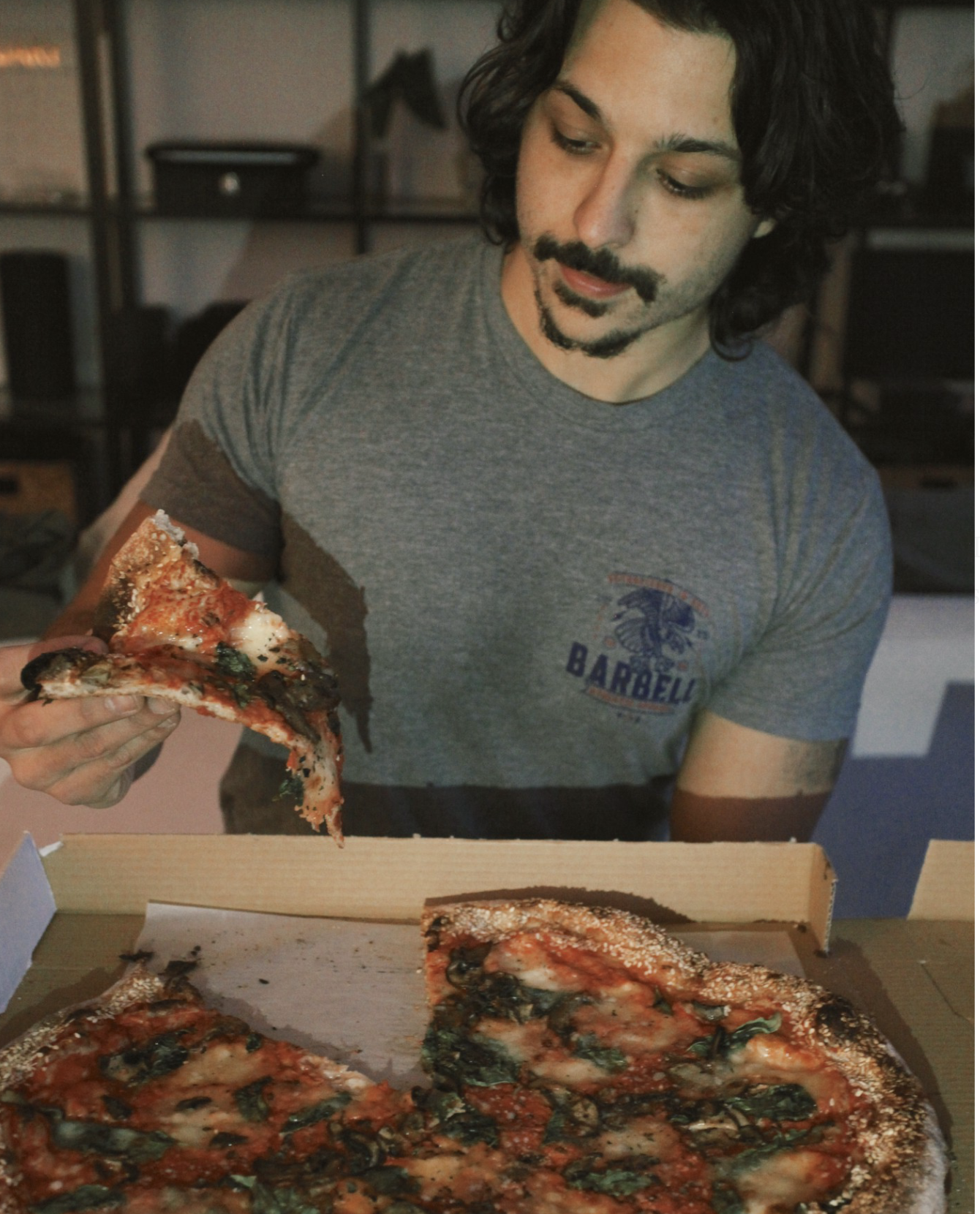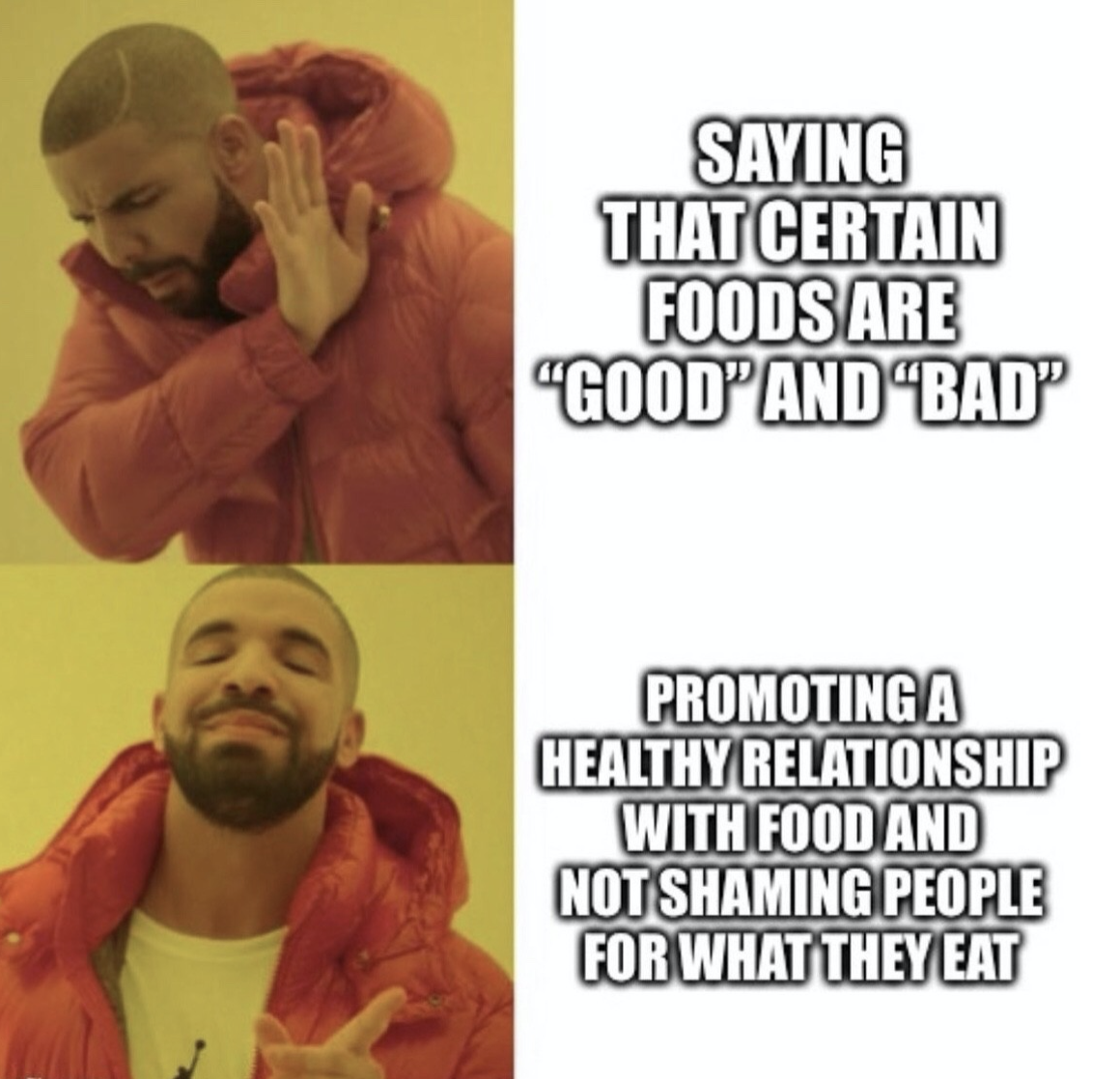Why I Loathe the Term “Cheat Days”
If eating pizza is wrong, then I’ll pass on being right.
The cheat day — every dieter’s favourite day. This used to be what I lived for. I counted down the days until I allowed myself to indulge again. I placed all of my favourite foods on a pedestal, told myself they were off limits, and then gorged on them on my designated cheat days.
I practiced this routine for years. It started off moderately and continued to progress. The apex of this cycle was intense and consuming. I‘d eat about 1800 calories from Monday-Thursday (with my maintenance hovering around 3000 cals) followed by absolute bangers every weekend.
Three consecutive Uber Eats orders in the same night? Light work.
Eating an appetizer, entree and dessert? Amateur hour.
Wandering down to the convenience store after all that food to get more snacks? Standard operating procedure.
This was fine though. It was my cheat day. It was a hall pass to do whatever I wanted and start fresh tomorrow. Two significant caveats to consider — this is not how the human body works, and more importantly, not how behaviour change works. Just like how that juice cleanse doesn’t “reset” or “detox” your body/metabolism, binge eating doesn’t wipe the slate clean or rid your desire to eat the foods you enjoy the most. If anything, it further increases the power of your taboo foods, and strengthens the cycle of restriction and bingeing you may be stuck in.
There is almost a level of trauma that many of us have when it comes to food. This might sound exaggerated but I don’t know how else to describe a physical manifestation of a psychological issue.
When I was experiencing the peak of my fear around food, I would have visceral feelings from eating specific foods that were in no way real. If I ate a food that I had prior deemed as fattening, I’d genuinely feel myself getting fatter while eating it.
I would pinch my belly fat and be entirely consumed by the idea that I was proactively storing fat there. Which I clearly was not. That’s simply not how adipose storage works.
It also highlights how much we fat shame each other and ourselves in this society. That is another topic in and of itself, but I want to bring awareness to how toxic my relationship to body image was and how deeply embedded the shame and loathing related to fatness is for a lot of us. Myself included.
When I was eating a cheat meal, I didn't have the irrational fears around food that I normally did. Everything was OK. I had earned these foods from crash dieting, so they couldn’t possibly make me fat — evidence that it was all in my head. Thus brings me back to my original point. The words that we use hold power. The words that we use to describe food are no exception to this. If you label foods as bad, fattening or as a cheat meal, then it’s going to be hard to ever have them in moderation or behave in a healthy way around them. They will either be completely off limits or indulged with unnecessary volume and voracity. Regardless, you’ll probably be left with FOMO or guilt.
It’s similar to when we were kids and were not allowed to drink. I can’t imagine my 16 year old self breaking that rule around alcohol by having just one cold beer on a sunny day to relax. If I gained access to alcohol, I was going to black out. I was going to be a walking description of how to drink irresponsibly. If I was going out on a limb to misbehave, then I was going to live it up to the fullest while I could. I wasn’t going to be the only angsty adolescent practicing the skill of moderation around prohibited behaviour.
What if I were allowed to drink at 16? What if there were no taboo around it? I’ve always heard this is the case in some European countries. Kids as young as 12 were allegedly allowed to drink wine occasionally with their families.
Would this help reduce their likelihood to binge drink? I would think so. When you take away both the taboo and scarcity around something, humans (in my humble experience) are going to exhibit more cognitive restraint around it.
I have personally experienced the same thing with food. When I began to give myself permission to eat whatever I wanted, things started to change. I started to crave these bad foods less and to moderate them more. Three slices of pizza became a meal — not a cheat meal. Not a binge fest. Just a meal made up of food. Food that wasn't as filling or nutrient dense, but in the grand scheme of things, not a big deal.
I started to enjoy whole foods more as well. Eating fruits and vegetables became less laborious. I no longer had to eat them. I wanted to. They were nutritious, satisfying, and they made me feel good.
What was the difference here? Two things:
I stopped labelling foods as good or bad or any similar dichotomy.
I stopped designating cheat days, cheat meals or anything resembling a hall pass.
If I ate more, then I ate more. If I ate more processed food one day, then I did my best to moderate it and move on. It was simple. Too simple it seemed, but it worked.
Do I still have cheat days now? By some people’s standards? Probably. By mine? No. Every Friday my partner and I order a large box of margherita pizza and eat in bed like complete assholes. It’s glorious.
We call it our Five Elements Coaching INC. board meeting and it’s essential for business. We discuss the most pressing of topics relating to our company. Such as what we should watch on Netflix, how sesame seed pizza crust is an absolute game changer, or which part of the order from our favourite pizza shop messed up on this time. They always forget something but their pizza is sogood that we can’t be bothered to care.
It’s not cheating to me because it doesn’t represent doing anything wrong. It’s simply enjoying my favourite food with my favourite person while being horizontal. If that is wrong, then being right sounds like shit and I want no part in it.
The results are relevant as well. If pizza makes you fat them I am a god damn unicorn. I ate pizza two times a week during my post lockdown weight-gain diet. I dropped about 11 pounds in around 5 months while eating pizza on the regular. How? I tracked my intake and put myself in a moderate caloric deficit. It’s easier to do with more whole foods but it’s also easier to sustain when you don’t ban everything you enjoy. It just involves more moderation. Which is exactly what I did.
Cheating is not considered a good thing from a moral perspective. It implies lying and being deceitful to gain an advantage. Or to be unfaithful. All of which have nothing to do with eating your favourite foods. Which is precisely why I loathe the term cheat meals or cheat days.
Label it however you like — but be mindful of whether those labels are impacting you in a negative way. If you label your indulgent meals as cheat meals without feeling guilt, shame or negatively impacting your relationship with food, then keep doing what you’re doing.
But if you’re anything like me, you might find those labels hold more weight than you realize. In which case, I recommend ditching them. I advise you to stop using language that shames you into pretending that you never eat your favourite foods. Language that then propels you to eat anything you deem indulgent in secrecy, or make some public announcement like “I never eat this stuff” whenever you do eat it openly. Finally, I advise you start labelling food exactly as what it is — food.
It can be more nutritious or less nutritious. It can be higher or lower in certain macro/micronutrients but at the end of the day, its still just food.
Cheers,
Coach Dylan🍻






